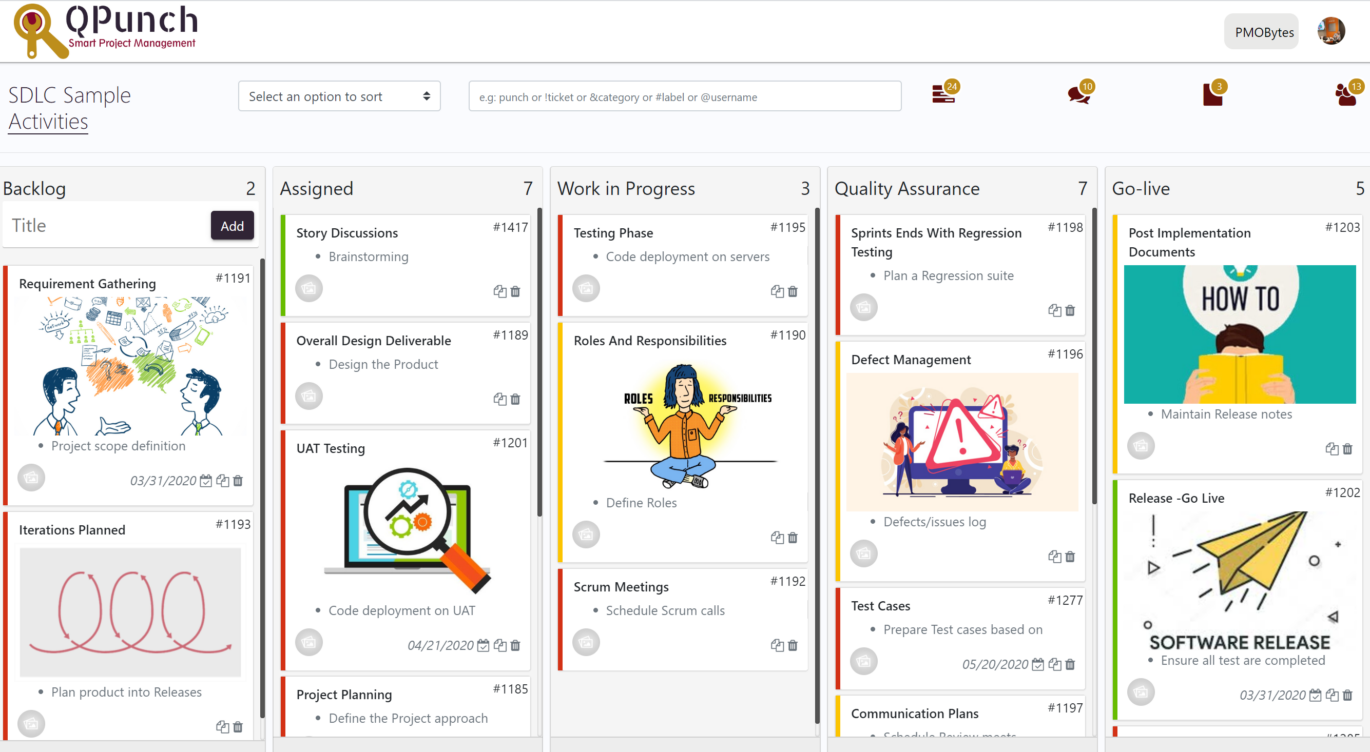Future of Project Management
Project Management is not Arts or Science but it is combination of both. There are two critical aspects of Project Management which creates this rare combination. First, having the art to take decisions at the right time. Second, the science which requires to maintain administration along with constant monitoring to keep the projects controlled.  Project Management as a discipline has been there from ages and has also evolved tremendously in recent times due to high business demands but there are still potential areas for improvement. As per a survey by Pulse of the Profession (2018), “9.9% of every dollar is wasted due to poor project performance— that’s $99 million for every $1 billion invested”.
Project Management as a discipline has been there from ages and has also evolved tremendously in recent times due to high business demands but there are still potential areas for improvement. As per a survey by Pulse of the Profession (2018), “9.9% of every dollar is wasted due to poor project performance— that’s $99 million for every $1 billion invested”.
This is not normal hence it requires some fundamental drift in the existing way of managing projects. There are multiple best practices, frameworks and methodologies but none of them have seamless integration towards digitalizing Project Management. In these times of rapid technology emergence, everything is getting digitally transformed. A lot of professions, example Pharmacists, Lawyers and paralegals, Drivers etc. are getting automated to an extent that machines are replacing humans and are more effective.
Any profession which is a set of repetitive steps with certain predefined process could be digitally transformed. Moreover, there is an uncontrolled demand to have things done faster and fairly automated. Project Management is bit complicated to fully automate as it requires an Art for managing stakeholders and take judgemental decisions based on experience in risk and issue situations. However, there are some repetitive activities and with technological advancements, there are areas which could be transforming this discipline to a better success rate.
Below are few areas which could create the necessary disruption in the Project Management discipline:
Augmented Communication: Communication is the backbone for the project which requires constant information flow across stakeholders. There is an administrative burden on the project managers and it increases as the project gets more complex with many stakeholders. Project support staff could assist to an extent but many times it’s becomes a luxury to have these members part of the project structure and then it also requires an additional element of management.

Imagine if the Artificial intelligence (AI) bots becomes a project manager’s support staff. This will reduce management overhead plus would increase efficiencies in the process. A project manager could call in Siri, Alexa or Google assistant to capture notes from a meeting which is quite possible with the technology advancement. The notes are drafted and based on the tone of the attendees, the bot would extract actions. It could have a mechanism of following up and tracking the actions until it is completed.
Automated Planning: Planning is the most critical aspect for Project Management, in fact, there cannot be a Project without a plan. However, most of the times planning is just done at the start and then the project starts diverting towards an unstructured Ad-Hoc basis of managing just tasks and activities. There is no constant review of the plans or it adjustments to the reality as the project teams are busy fire-fighting rather than thinking ahead to control things proactively.
Agile thinking and management has improved the situation in certain project domains like software development and research but all projects cannot follow just Agile way of working. For instance, Construction projects have many regulatory constraints which mandates substantial planning at the start prior to execution. One way to have this situation improved is with the inclusion of automated planning, there has to be system driven plans which Project managers could leverage as they start the projects.
The system should be able to extract plans based on constraints, stakeholder matrix, complexity and dependencies. With this approach, the need for dedicated planners could be minimised and accuracy of these plans could increase tremendously. The system will learn based on trends and would suggest the project manager the best suitable template to get started and keep improving as the execution in progress. Stakeholders need quick deliverable and this could be achieved if the time is saved in planning and getting into execution rapidly. There are systems like BIM to derive design rapidly and see the end product prior to execution and know exactly all related features and dimensions. Similarly, applications could derive more accurate plans and schedules instantly based on the contract, constraints and dependencies based on particular project environment.
Instant Progress Reporting: Daily, weekly, monthly and many event driven ad-hoc reports are required during the project life-cycle. Most of the times, these are manually drafted and information is positioned based on the audience for each reporting forum. It consumes some efforts and requires a sensibility to decide how much to report to whom.

One way to automate reporting is to have it based on the team’s inputs for progress, as the team progresses they report on a visual systems like automated Kanban Boards. System generates and provides insights based on trends on the project progress and also what are the expected pitfalls. It can have the capability to learn from experience improving the entire reporting cycle and enhancing overall visibility to all stakeholders for the project phases.
Smart Quality Control: Deliverable getting accepted are major targets which takes the project towards its end objective. In many instances, the acceptance criteria are not well written in the beginning which causes delays in sign offs and payment cycles.
With new technologies like Blockchain, every transaction could be tracked and verified as the progress is happening against a pre-set system based quality criteria. Once the deliverable reaches its final stage, it would have crossed all system validations to provide confidence to the end user that this has been verified by the system and stabilised to a level expediting the delivery mechanism.
Advance Conflict Resolution: Many times during project conflicts, you need to refer to the scope and historical information which is scattered around on multiple platforms. Project Manager have to spend immense efforts collating information to derive facts of what was said, when, by whom etc. This is critical to get the situation back in control and certain times the information is lost if the previous project team didn’t handover appropriately.
With the advancement of technology, tight integration between systems could be possible to ensure all previous historical data is stored in a single platform is readily available to handle conflict resolution efficiently. These systems could somehow correlate all information and present to the Project manager as report which would a basis to have the conflict resolved effectively.
Final Thoughts: As a conclusion, technology will enhance this discipline but hasn’t evolved to a level that it can replace a project manager. Managing project requires emotional intelligence for people management that is difficult to replace by machines. However, the technology aspect will gain utmost attention to cater to the increasing business demand.

All project management frameworks and professionals will have get technology savvy to complement their skills. Few years back, our smart phones were optional but now our entire life is depending on these devices. Similarly, project management will take an essential advancement with technology inherited within it. The faster you move in this direction, the better it would be for delivering successful projects.


